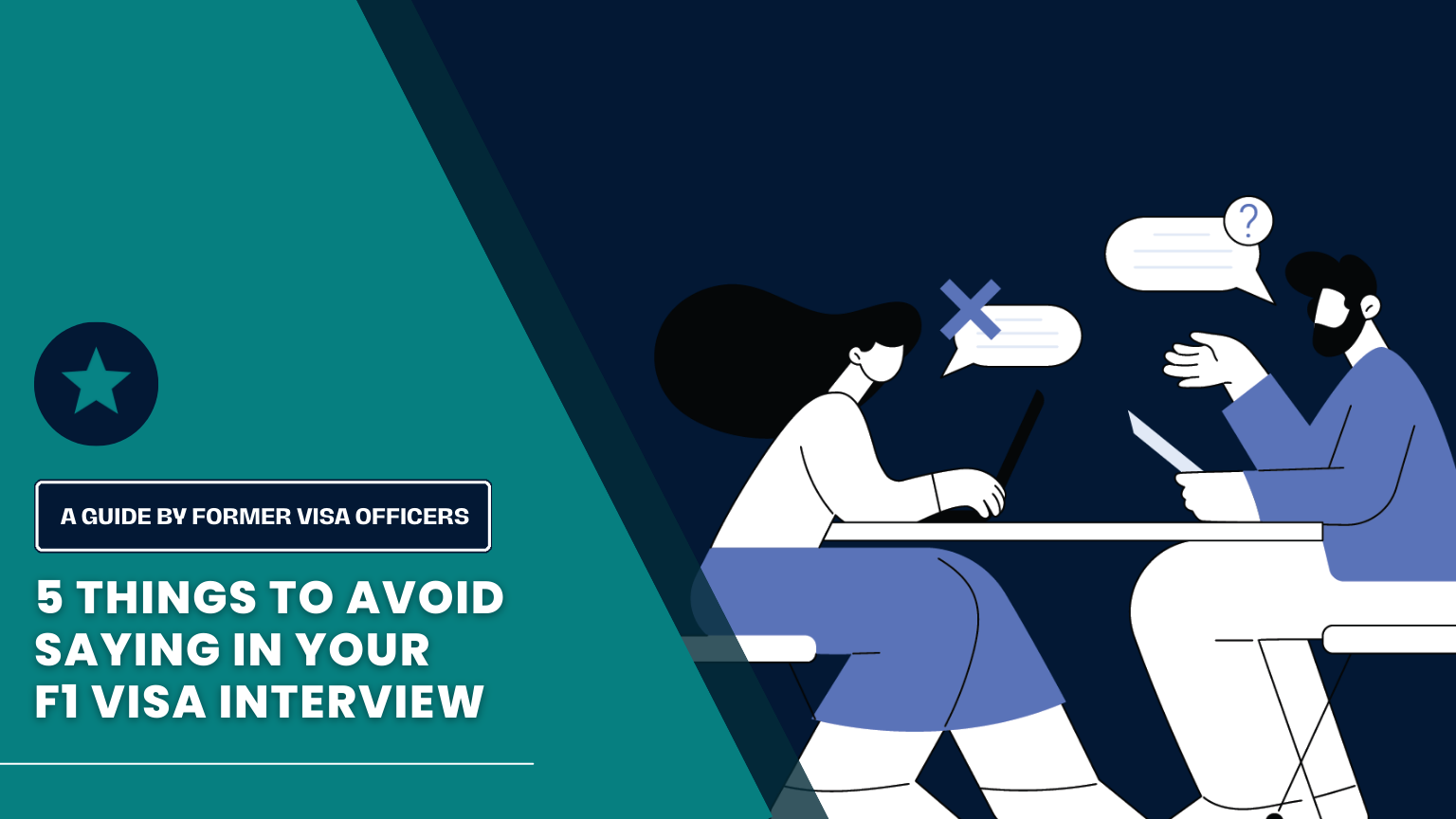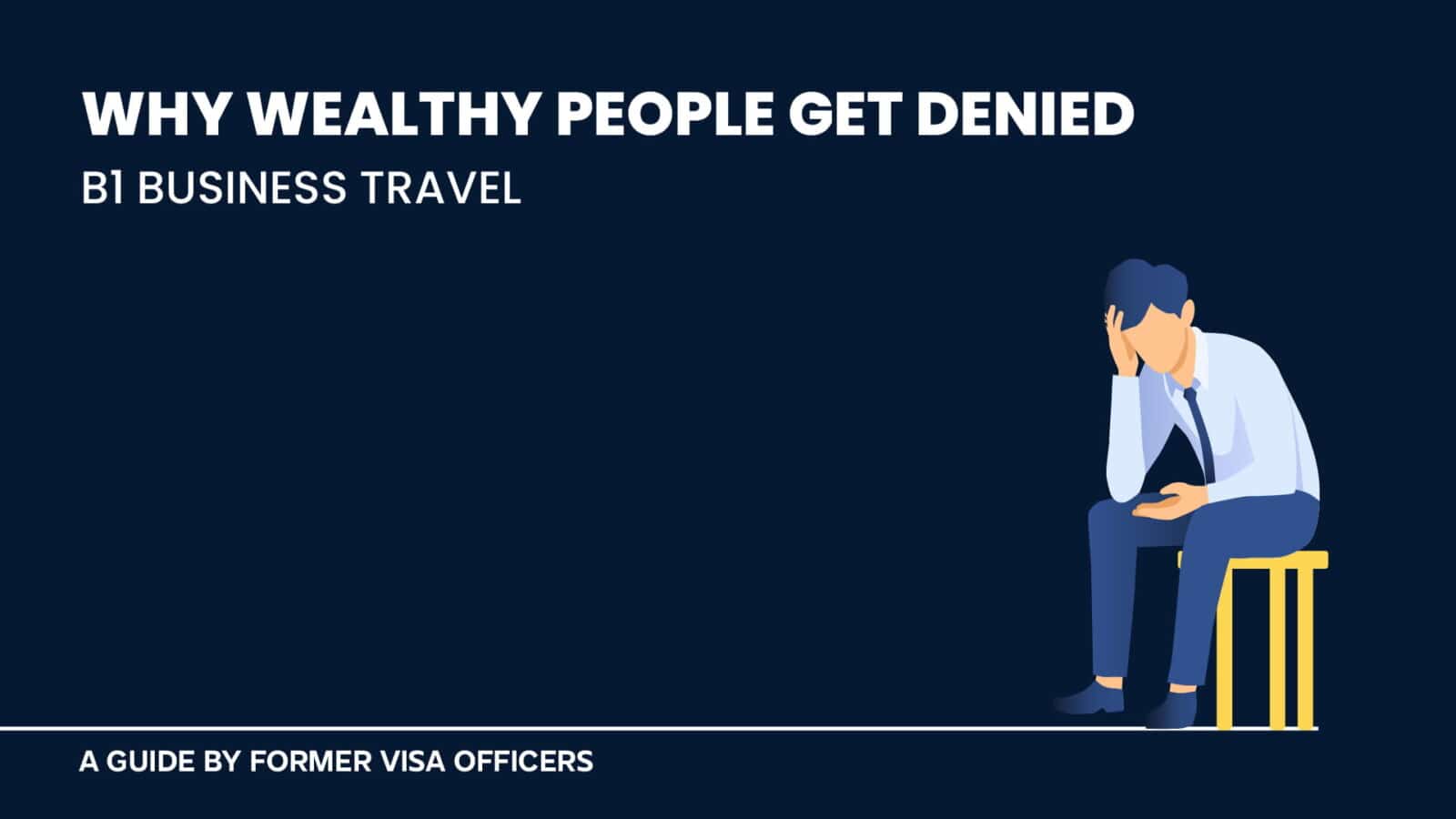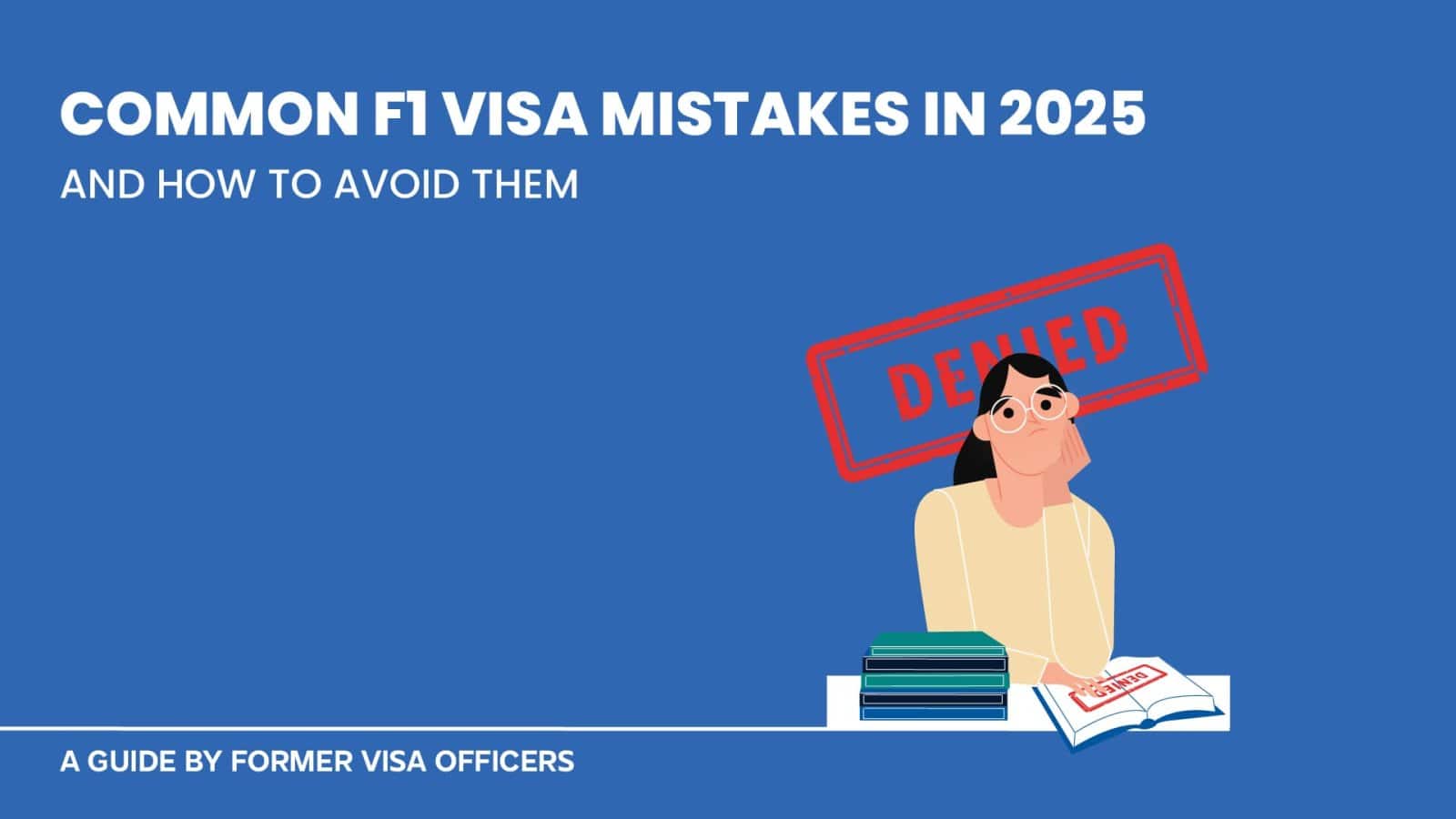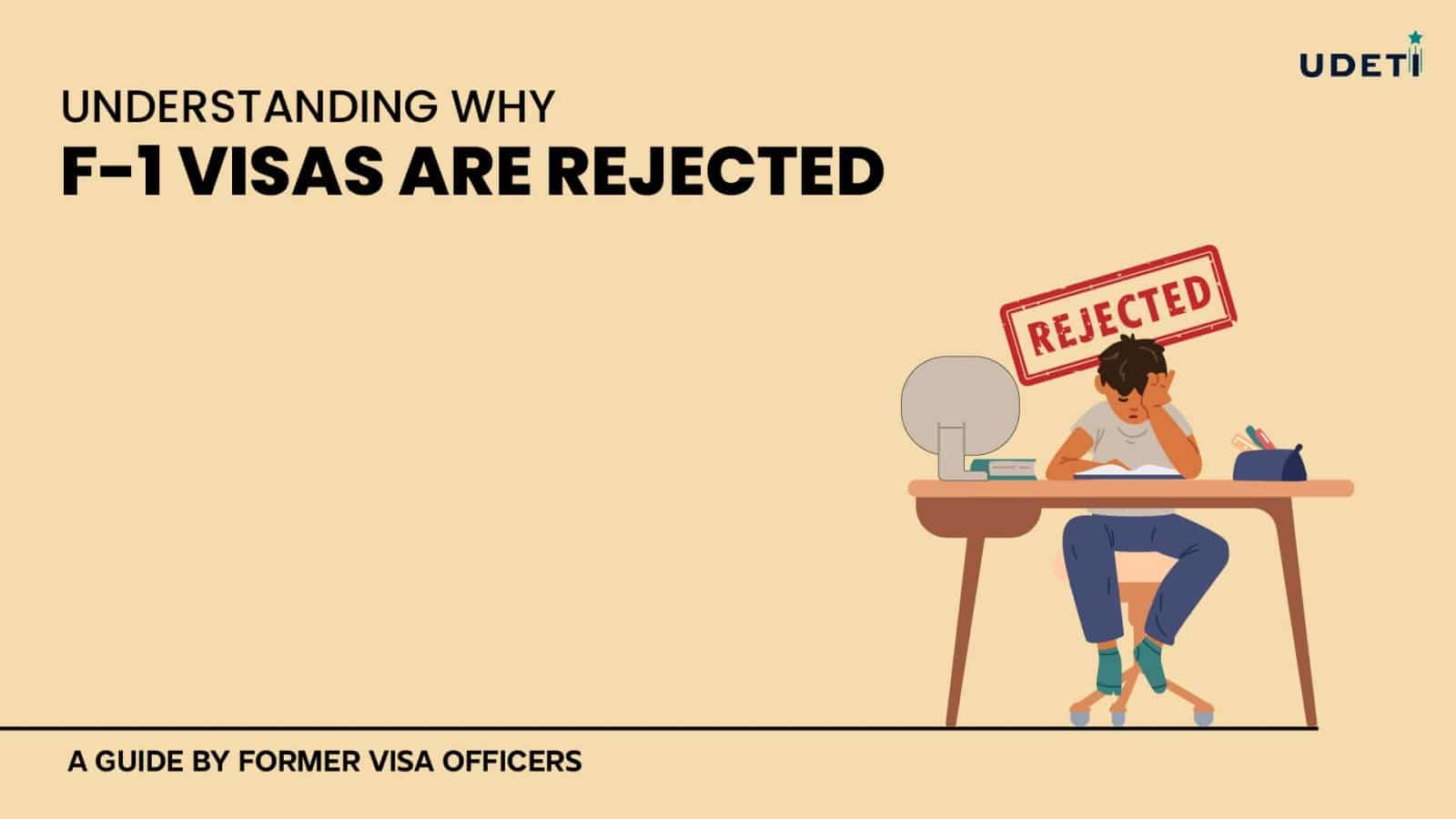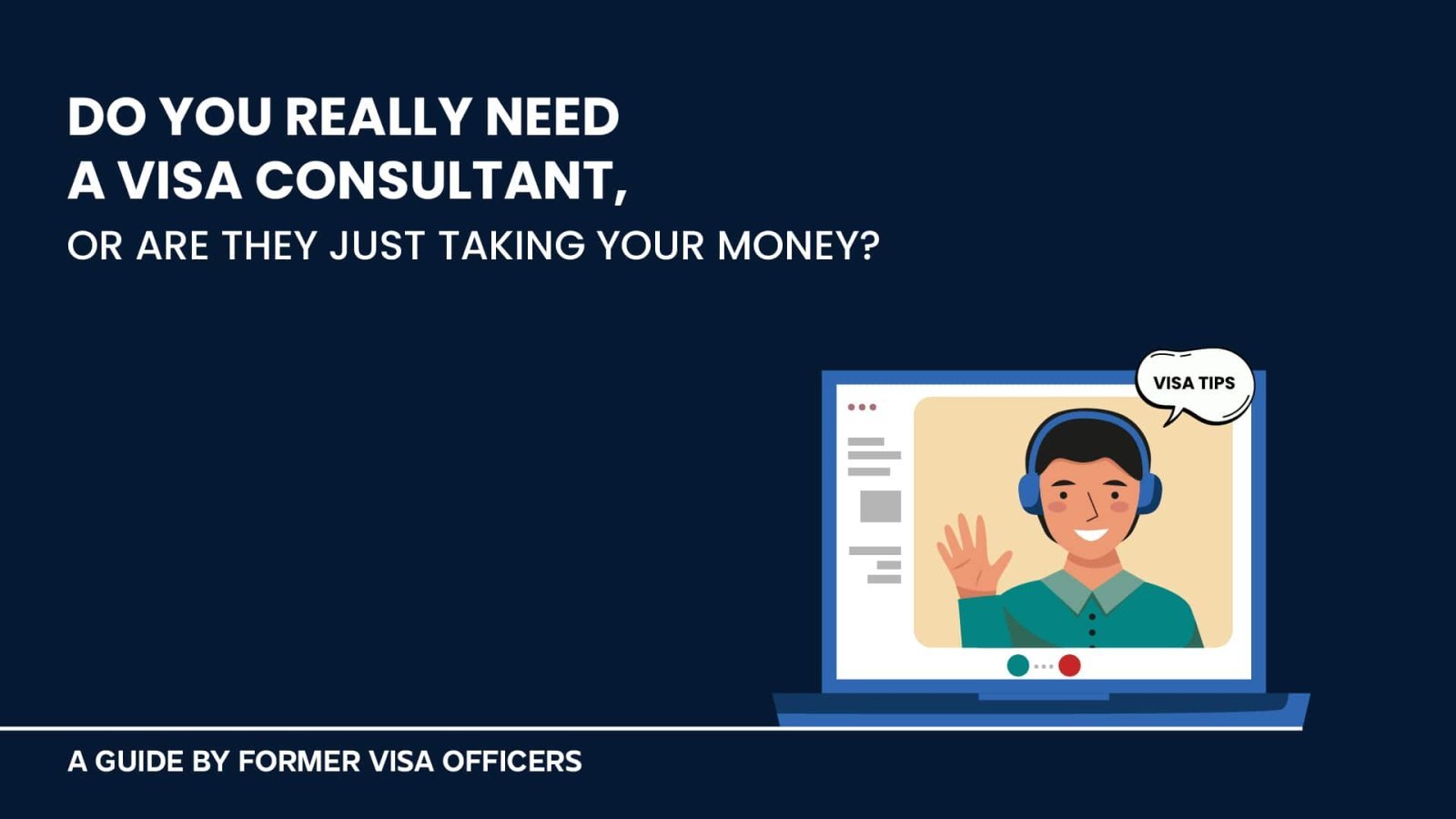The dream of becoming an international student and pursuing education in the USA comes with the stress of clearing an F1 visa interview. You might be fully qualified in papers, but fumbling and making mistakes in a visa interview can cost you visa approval. To ace the interview, an applicant must know what visa officers inspect in the interview. Let’s help you understand this aspect.
What Visa Officers Check in an Interview?
An F1 visa is a non-immigrant visa that allows students from other countries to pursue education in the USA. Visa officers are inclined to check the following points in an F1 visa interview.
- Is an applicant a serious student?
- Is he/she capable of covering expenses while staying in the USA?
- Is the student clear with his/her study plans in a foreign land?
Therefore, an applicant needs to prepare and systematically make sure the visa officer’s concerns are solved in the interview. This way, you’ll avoid getting unnecessarily involved in 221G processing or being rejected for a visa.
Here’s how you can make sure your F1 visa interview goes well.
Five Things to Avoid Saying in an F1 Visa Interview
Don’t Say Generic Stuff
When visa officers ask questions regarding the selected university, course, and curriculum, many applicants give vague or general answers that don’t completely answer the question. For example, upon being asked why they selected XYZ University, applicants answer because it’s the best in the USA instead of mentioning the features and facilities of the university or because it’s appropriate according to them. Applicants must show the visa officers that they’ve performed in-depth research and know what they’re entering into.Avoid Saying rehearsed Answers
If you plan to answer what everyone is saying in an interview and try to be on the safe side, let us tell you, it won’t work. Visa officers don’t have time to cross-question applicants to gain clarity. Instead, they may reject your application for sounding too rehearsed. To stand out, you need to prepare your answers, but be flexible and authentic.Never Rely on One-Word Answers
You’ll find visa officers asking questions like who’s funding your education, what your family members do, and what your father’s occupation is. These questions are asked to understand your financial background. Answering in one word in such scenarios as my family sponsoring me will not clear doubts in the visa officer’s mind and can create trouble in visa processing. Instead, take a couple of seconds, gather the information, and frame the answer take clear all the doubts.Avoid Stating Contradictory Information
Lying in a visa interview and stating facts that contradict information mentioned in your visa application forms is a big no. This raises doubts in visa officers’ minds and often leads to delays in visa processing. Lying can seem like trying to pretend that you’re not what you try to show for the visa and can initiate big troubles for your application. There’s no need to exaggerate to get the visa, instead, students are advised to stay calm and honest in the duration.Steer Clear of Ma’am, Sir
Students mostly address the visa officers as sir/ma’am or even officers, but it’s recommended to avoid using these words repetitively. The logic behind this is, that the visa officers are there for their job and are not superior to applicants in any way possible. This way, applicants can also have a greater chance of being relaxed in an interview and being authentic in front of a visa officer.
Not sure if your paperwork is good enough? Let an ex-visa officer review it with you.
Wrapping Up for Aspiring International Students
Giving a smooth interview is critical for aspiring international students. These lists of things to avoid will help you dodge the problems you don’t want in your application. Now, we assume you know the factors and things to not say in an F1 visa interview. It’s time to start preparing for what you should do in an F1 visa interview to get success.
DISCLAIMER:
This blog does not endorse or advocate for any illegal activities. All content presented here is intended for educational purposes only. The viewpoints expressed do not constitute legal advice and are solely based on the writer’s opinions and experiences. Please use the information provided responsibly. Any advice given is of a general nature and should be applied to your specific circumstances with caution and consideration.
Copyright © 2024 UDETI LLC. All rights reserved.

